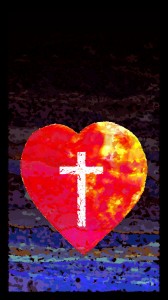 Can you ever get enough of the gospel? Hopefully your answer is a loud NO! Every believer should spend the rest of his life thinking through the gospel. We will never fully understand everything that God has done. But our book of the month for May will help. The Cross of Christ, written by John Stott (who just went to be with the Lord at the age of 90 this past July), is a superb presentation of what Christ has done for us on the cross.
Can you ever get enough of the gospel? Hopefully your answer is a loud NO! Every believer should spend the rest of his life thinking through the gospel. We will never fully understand everything that God has done. But our book of the month for May will help. The Cross of Christ, written by John Stott (who just went to be with the Lord at the age of 90 this past July), is a superb presentation of what Christ has done for us on the cross.
This work deserves careful study, with the promise of great reward by way of increased awe and wonder at the Cross of Christ. The author has taken biblical words and passages, given them careful study, and then communicated exactly what we need to know to comprehend the wonder of the cross. The book is divided into four parts, with an outstanding concluding chapter that takes you through the book of Galatians and its emphasis on the cross.
The first part, Approaching the Cross, sets the scene for the entire book. After showing the centrality of the cross throughout scripture and the history of the church, Stott answers the question in chapter 2 “Why did Christ die?” More specifically, who was responsible? He traces the answer from the Roman soldiers, to Pilate, to the Jewish leaders, to Pilate. But that is looking at the reason from a human level. From the divine level, it was the Father who gave Him up, and He gave Himself up. “He went to the cross voluntarily, even deliberately. From the beginning of his public ministry he consecrated himself to this destiny.” Amazing, isn’t it?
The second part, The Heart of the Cross, we see the problem that people have with forgiveness through the cross due to their lack of understanding of both the seriousness of sin and the majesty of God. The high point of this part of the book comes in chapter 9 where he proves the necessity of the only possible substitute: Himself. “The biblical gospel of atonement is of God satisfying himself by substituting himself for us.” This goes against what men want: they want to “insist on paying for what we have done. We cannot stand the humiliation of acknowledging our bankruptcy and allowing someone else to pay for us.” Yet that is what must be done.
The third part, The Achievement of the Cross, is probably my favorite, especially Chapter 7. What makes it especially powerful is the full and clear descriptions of the biblical words propitiation, redemption, justification, and reconciliation. You would do well to spend a lot of time in this chapter as Stott teaches from Romans 5 and 2 Corinthians 5 what these words mean and how the Cross has accomplished each of them. Besides these great words, there are two other chapters which show that the Cross has revealed God’s love and justice, and that it has conquered evil.
The fourth part, Living Under the Cross, is where Stott shows how the Cross should impact our daily life. Here we find the importance of the new community created by the Cross, which is celebrated together in worship at the Lord’s Table. Also, there is an interesting chapter on Self-Understanding and Self-Giving. He states, “Christians can longer think of themselves only as created and fallen, but rather as created, fallen and redeemed.” This should result in both self-affirmation and self-denial, resulting in self-sacrificial love for God and for others—including our enemies! The final chapter of this part of the book deals with suffering and how it relates to the Cross. This chapter will be especially helpful as we experience pain in our lives.
Every chapter is full of Bible exposition to show the supremacy of the Cross of Christ. Do not let the size of the book scare you (that’s what it did to me at first!). Read it in small chunks. You will find many quotes like this final one that will make you stop and think, then love and praise God:
The concept of substitution may be said, then, to lie at the heart of both sin and salvation. For the essence of sin is man substituting himself for God, while the essence of salvation is God substituting himself for man. Man asserts himself against God and puts himself where only God deserves to be; God sacrifices himself for man and puts himself where only man deserves to be. Man claims prerogatives that belong to God alone; God accepts penalties that belong to man alone.
